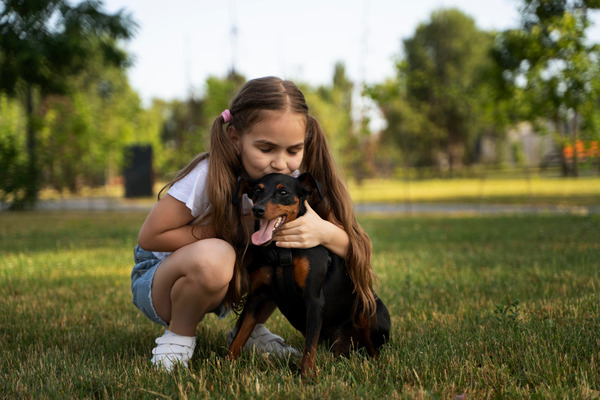Dogs trained for protection do more than guard your home. These protection pets also offer warmth, affection, and loyal companionship. With the right approach, families can enjoy the best of both worlds—security and a deep emotional bond.
Trained to Protect, Born to Connect
Most protection dogs come from intelligent, people-focused breeds. German Shepherds, Dobermans, and Belgian Malinois are alert yet family-oriented. These dogs protect because they care. They form close bonds with their handlers and thrive on structure, trust, and routine.
Even while on duty, many still enjoy a belly rub or a game of fetch. They understand when to switch between work and play—especially when trained to do so.
Set Clear Roles from the Start
Establish routines early. Teach your dog when it’s time to relax and when it’s time to focus. Use consistent cues for guard work. After duty, let them rest and interact with family members. This balance helps the dog feel secure in its dual role.
Reward calm, affectionate behaviour at home. Give your dog time off-duty to enjoy walks, toys, and quiet companionship. That downtime is essential for long-term emotional stability.
Socialisation Builds Confidence
A well-socialised dog feels confident and less reactive. Introduce your dog to various people, environments, and situations from an early age. Calm exposure reduces fear-based aggression and strengthens the dog’s ability to make thoughtful decisions.
Protection should never come from fear or anxiety—it should come from confidence and control.
Make Training Part of Daily Life
Incorporate short training sessions into everyday routines. Practice obedience, leash manners, and response to commands. Mental stimulation builds trust and reinforces boundaries. Your dog will become more reliable—and more connected to you.
Protection pets benefit from positive, consistent interaction. Let them succeed, and praise them when they do.
Love and Loyalty Go Hand in Hand
Dogs want to protect those they love. That emotional connection is their driving force. Protection Pets defend homes not just out of duty, but out of loyalty. When you nurture the bond, their protective instincts become even stronger and more focused.
With attention, respect, and proper training, your dog can be both a guardian and a beloved member of the family.

